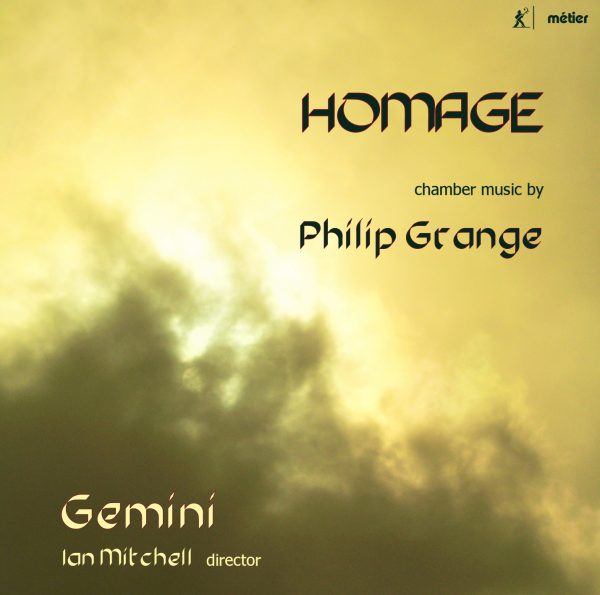Musical Opinion
This CD is a tribute to Philip Grange at his 60th birthday. Gemini is an outstanding ensemble which has already made two CDs of Grange’s music and their association goes back thirty years. In every way this is a close partnership between composer and dedicated performers.
A pupil of Maxwell Davies, Grange became a colleague of John Casken in Manchester. They both lived in the Peak District and have been profoundly affected by the landscape – ‘desolate gloomy moorlands and the breath-taking vistas often illuminated by powerful sunlight’, as Grange puts it. Tiers of Time, for piano quartet, was written to mark Casken’s retirement in 2007: it even quotes from his Piano Quartet. The general territory of both composers is a dialect of main¬stream modernism. If we compare Caskin’s Piano Quartet with Grange’s Tiers of Time, Grange has a more continuous line and is less frenetic.
Grange admires Edward Thomas, who was killed in action in 1917, and has visited his grave in France. The resulting Elegy for solo cello (2009) shows a melodic nobility and holds attention in a way not common in works for solo instruments. And Sophie Harris is a wonderful cellist.
The Piano Trio (1995) is subtitled Homage to Chagall. The third movement, Quasi recit., is the only one to refer to specific pictures and these can be reached online. It’s not easy to identify aural connections with the painter but Grange talks of his analogy to Chagall’s ‘use of a large, but nonetheless limited number of images, one of which might provide the focus of a particular painting, while appearing peripheral in another.
The most substantial piece is the half-hour Shifting Thresholds (2016). This time the extra-musical influence is Samuel Beckett, specifically his novel Malone Dies which Grange had known for many years. The four-movement work is for flute, clarinet, violin, cello, piano and percussion and requires a conductor. There are plenty of engaging textures, ventilated by a variety of percussion. The composer says that at some points the music ‘oscillates between two pitches or chords’ – these perceptible moments are contrasted with wider leaps of fantasy to make a fascinating dialogue. Informative booklet and high-quality recording.
Grange is writing an opera with a libretto from poet and critic Fiona Sampson. It is scheduled to be put on by Tête à tête in August [2020] – it should be worth seeing.
(Five stars awarded)
@divineartrecordingsgroup
A First Inversion Company
Registered Office:
176-178 Pontefract Road, Cudworth, Barnsley S72 8BE
+44 1226 596703
Fort Worth, TX 76110
+1.682.233.4978












